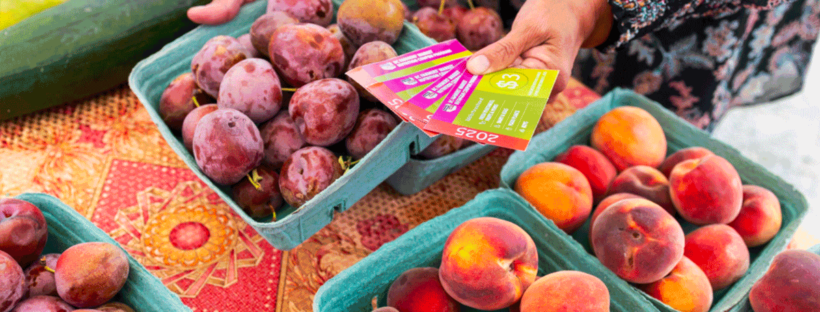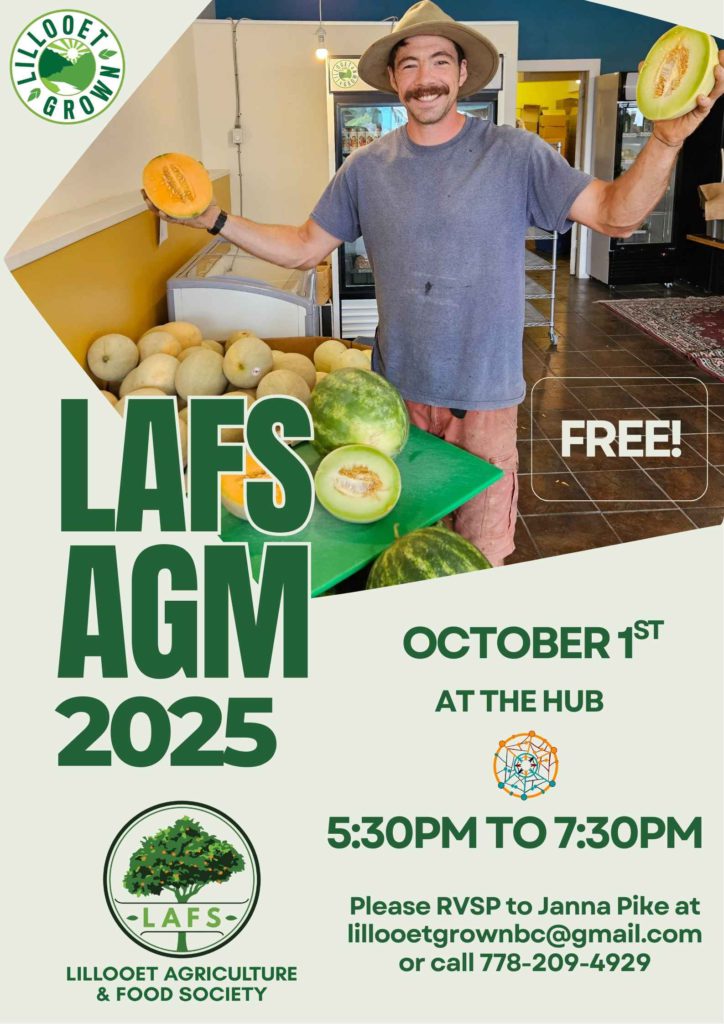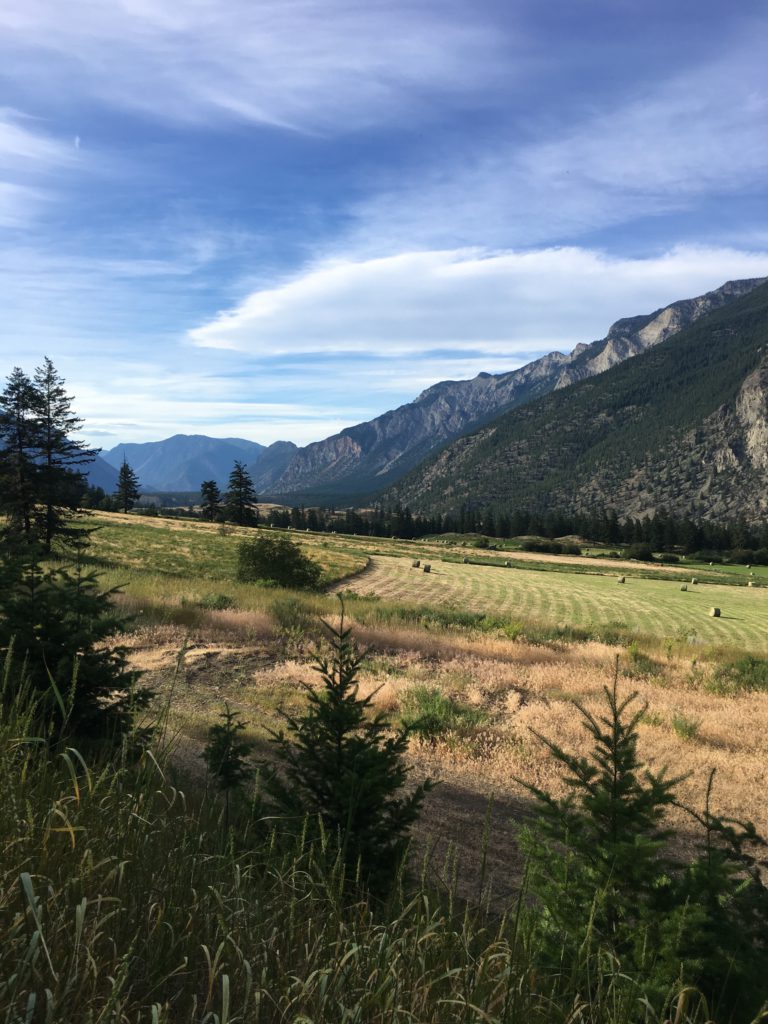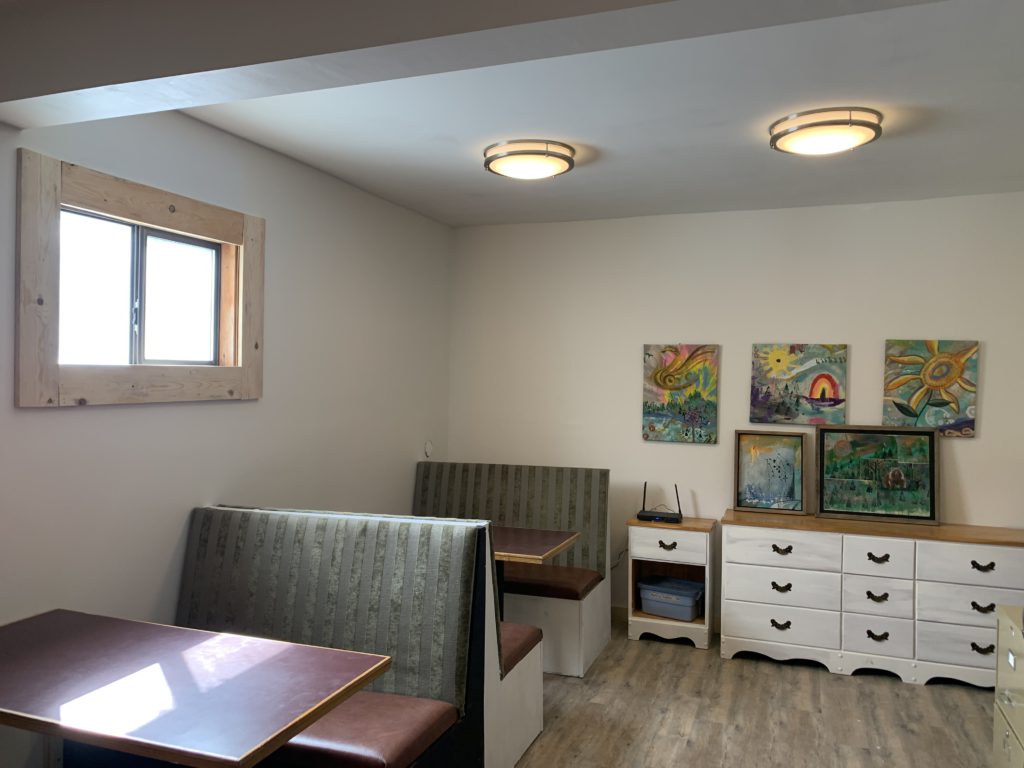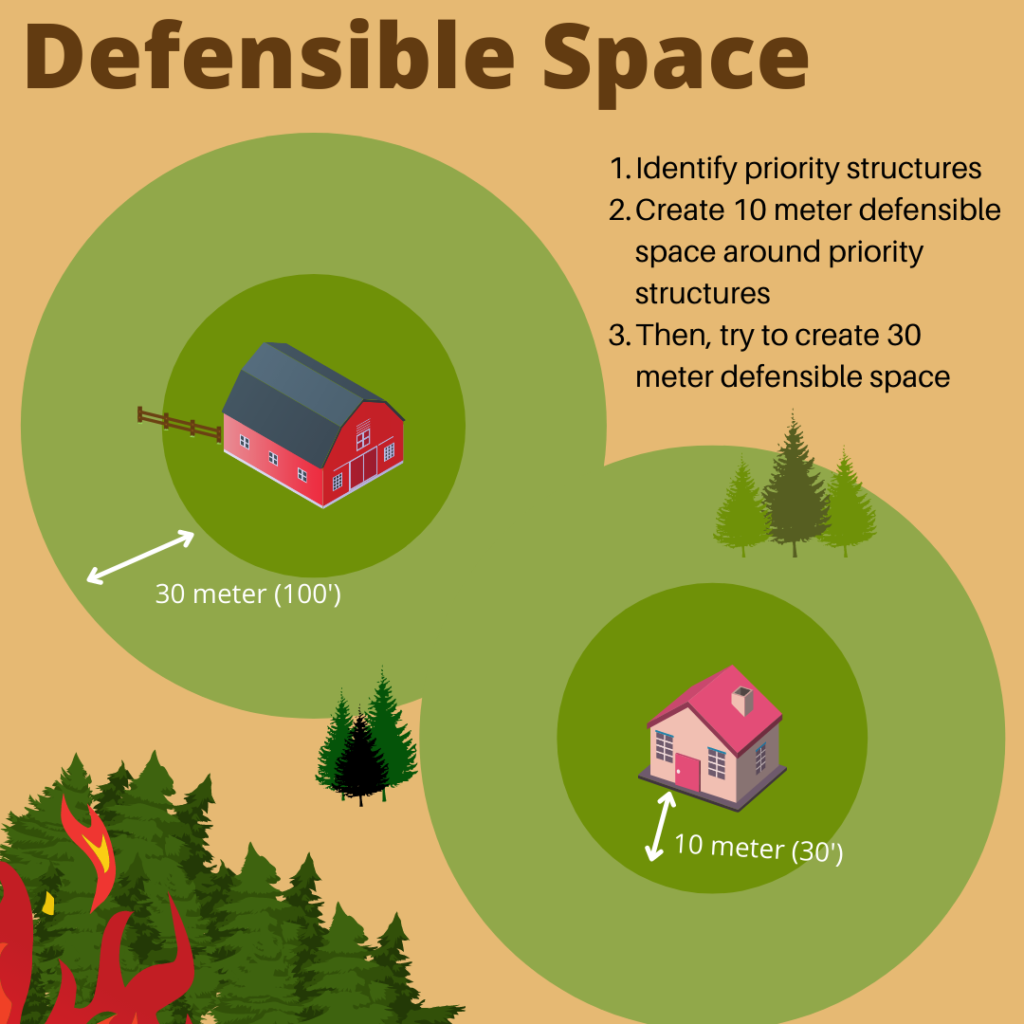Do you enjoy working with local food and the people who grow it?
Do you care about building community through everyday actions?
Are you looking for work that feels meaningful at the end of the day?
The Lillooet Agriculture and Food Society (LAFS) is hiring a Storefront & Programs Manager to support the Lillooet Grown Storefront—a community-based food hub located in the HUB building in Lillooet.
This role combines hands-on storefront management with meaningful community food programming. It’s a great fit for someone who values local food systems, food access, and community connection, and who enjoys both practical operations and people-centred work.
This is not a typical retail position. It’s a role with real responsibility, mentorship, and room to grow as programs and funding expand.
What You’ll Do
Run a Welcoming Community Food Hub
Keep the storefront organized, inviting, and running smoothly while supporting local farmers, food producers, and artisans.
Bring Community Food Programs to Life
Help deliver food access initiatives like the BCAFM Nutrition Coupon Program, and support workshops, community meals, and harvest dinners that bring people together.
Keep Systems Flowing & Growing
Support basic administration, documentation, and planning while helping improve systems that keep programs accountable and sustainable.
Who This Role Is For
We’re looking for someone who is organized, dependable, and enjoys working with people. You don’t need to know everything already—what matters most is curiosity, care, and a willingness to learn.
Experience in retail, nonprofit work, community programs, or food systems is an asset, but not required.
Why Work With Us
The Lillooet Grown Storefront exists to support local producers, strengthen food access, and build community resilience. This role offers meaningful work, hands-on experience across operations and programming, and the opportunity to grow with a values-driven organization.
It’s a strong foundation for someone interested in community food systems, nonprofit leadership, or agricultural program management.
Position Details
Hours: Approximately 30 hours per week (with potential to grow)
Wage: Starting at $25 per hour
Location: Lillooet, BC
Start Date: Immediate, with flexibility for the right candidate
How to Apply
Please submit a brief cover note and resume outlining your interest and relevant experience to:
lillooetagricultureandfood@gmail.com
Applications will be reviewed as they are received.
